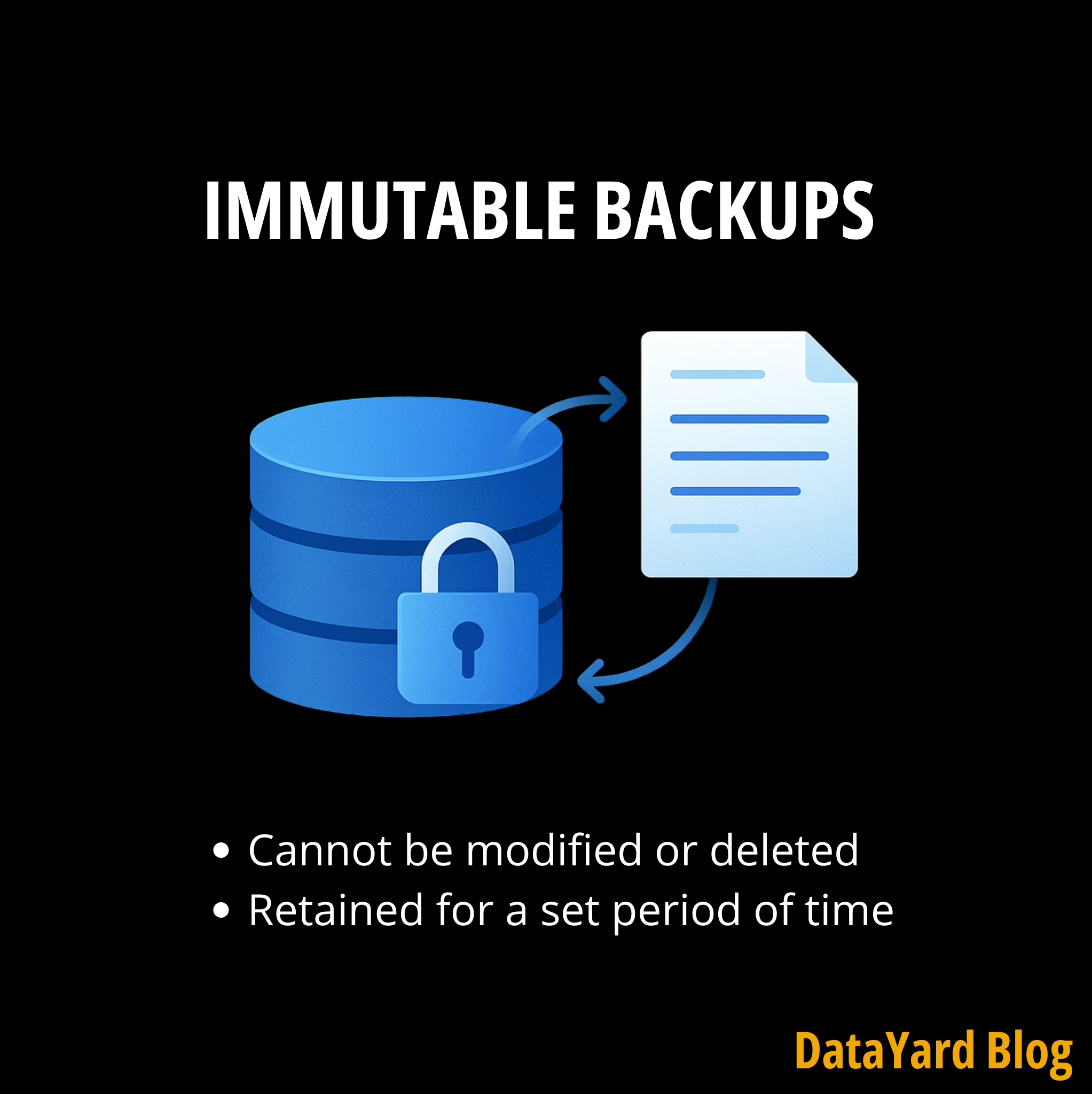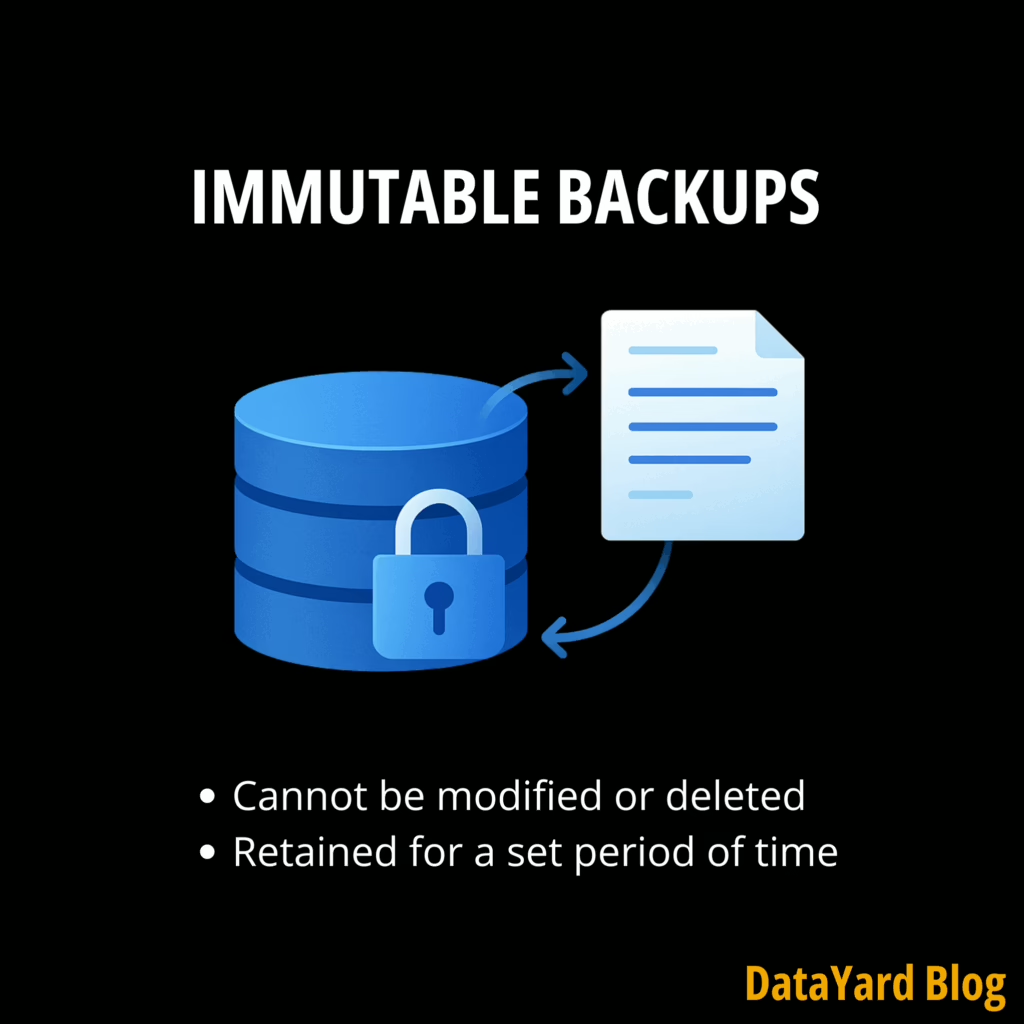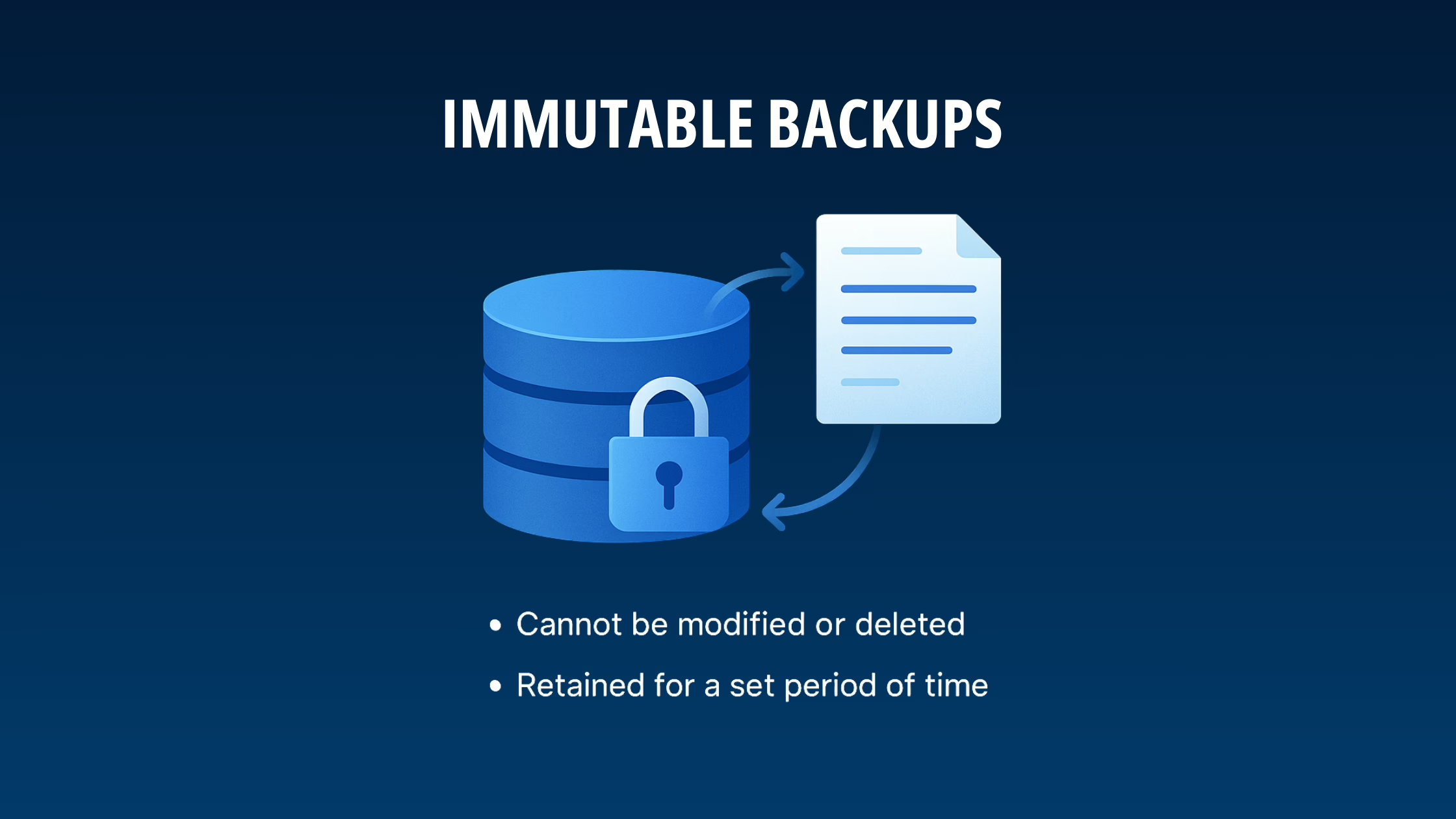
Secure Credit Union Website Hosting That Just Works
Credit unions and other financial institutions are facing growing pressure



In the simplest terms, immutable backups are backups that cannot be altered, deleted, or overwritten once they’re created. The word “immutable” means “unchangeable.”
Unlike traditional backups, where files could be tampered with — either accidentally by an employee or intentionally by a cybercriminal — immutable backups are locked in a write-once, read-many (WORM) format. This ensures that once data is saved, it remains exactly as it was at that moment in time, ready to restore, but never to be rewritten or wiped.
Here’s the reality: ransomware is still a successful cyber attack vector, and your backups are often the first target.
If attackers gain access to your systems and manage to encrypt or delete your backups, you’re left with two options: pay the ransom or start from scratch. Neither is good for business. However, with immutable backups, your business-critical data remains locked, secured, and untouchable, even by someone with admin access.

Here’s why that matters for you:
So how does this all work behind the scenes? By combining write-once, read-many (WORM) storage with strict retention locks, immutable backups ensure your data stays exactly as it was the moment it was captured. In the next section, we’ll break down how immutable backups work and why this approach is quickly becoming the gold standard for ransomware-proof recovery.
Immutable backups are powered by a combination of write-once, read-many WORM technology and retention locks:
In practice, immutable backups act like a digital time capsule. No matter what happens to your live environment — whether it’s ransomware, hardware failure, or human error — your backup remains a clean, untouched version of your data, ready to restore when you need it.
The best part? This technology is flexible. It can be deployed across cloud environments, on-prem appliances, or hybrid backup solutions depending on your infrastructure. That means businesses of any size can tailor immutability to fit their existing IT strategy without overhauling everything.
So how do immutable backups actually stack up against traditional ones? Here’s a quick side-by-side breakdown to show why immutability is a game-changer in the fight against data loss and ransomware:
Immutable Backups vs. Traditional Backups
Feature | Traditional Backups | Immutable Backups |
Protected from being altered/deleted | ❌ No | ✅ Yes |
Ransomware resistant | ❌ Vulnerable | ✅ Protected |
Compliance-friendly | ❌ Limited | ✅ Meets WORM requirements |
Recovery reliability | ⚠️ Questionable | ✅ Highly reliable
|
The verdict is clear: if your backups can be changed or deleted, they’re not truly protecting your business. Immutable backups offer the consistency and resilience modern cybersecurity demands.
Cybercrime isn’t slowing down; ransomware alone costs U.S. businesses millions every year. And the truth is: no firewall, antivirus, or password policy is 100% foolproof. That’s why businesses are turning to immutable backups as the last line of defense.
When your backups are designed to remain untouched and available, you’re protecting more than just data; you’re safeguarding your operations, revenue, reputation, and customer trust.

In fact, according to the 2025 Ransomware Trends and Proactive Strategies report, 89% of organizations have had their backup repositories targeted by attackers. As a result, more companies are adopting immutable backups as part of their cyber resilience strategies and best practices to stay ahead of evolving threats.
Choosing the right immutable backup solution is becoming one of the most effective ways businesses can strengthen their cybersecurity posture.
Immutable backups aren’t a “nice-to-have.” They’re becoming an essential part of any modern cybersecurity strategy, alongside multi-factor authentication (MFA), endpoint detection and response (EDR), and proactive patching. If your current backup solution doesn’t include immutability, it’s time to reevaluate. The cost of not having it could be far greater than the investment to implement it.
Every organization’s environment is different, which is why exploring your unique gaps is key. To help, we offer a complimentary consultation and are hosting a webinar in September of 2025 designed to highlight the most common blind spots.
Ask Us About Immutable Backups
Sit down with a DataYard cybersecurity specialist to evaluate your security strategy, so you can close gaps, reduce risk, and keep your business safe from evolving threats.
Ready to see how immutable backups can protect your business from ransomware and data loss?
Learn More About Data Backup & Recovery Book a Consultation
If you’ve ever worried about hidden risks beyond backups, this webinar is designed to spotlight the cloud gaps most businesses don’t see until it’s too late.
In this online webinar, you’ll learn
Every attendee receives:
Your business deserves comprehensive protection, not checkbox security approaches. You need experienced partners who prioritize uptime, data protection, and ransomware resilience as seriously as you do.
DataYard provides that partnership.
Contact us to get a free consultation.
Email: [email protected]
Phone: 937-226-6896 option 2
Learn More: Data Backup & Recovery Solutions
Schedule Your Free RISE IT RISK Assessment: Get Your Assessment
References
Disclaimer:
This blog is for informational purposes only and does not constitute legal, compliance, or security advice. Businesses should consult with IT and compliance teams to determine the best backup and security strategies for their unique environment.

Credit unions and other financial institutions are facing growing pressure

Cloud cost optimization in 2026 isn’t just about cutting spend

Phishing remains one of the most dangerous cyber threats facing